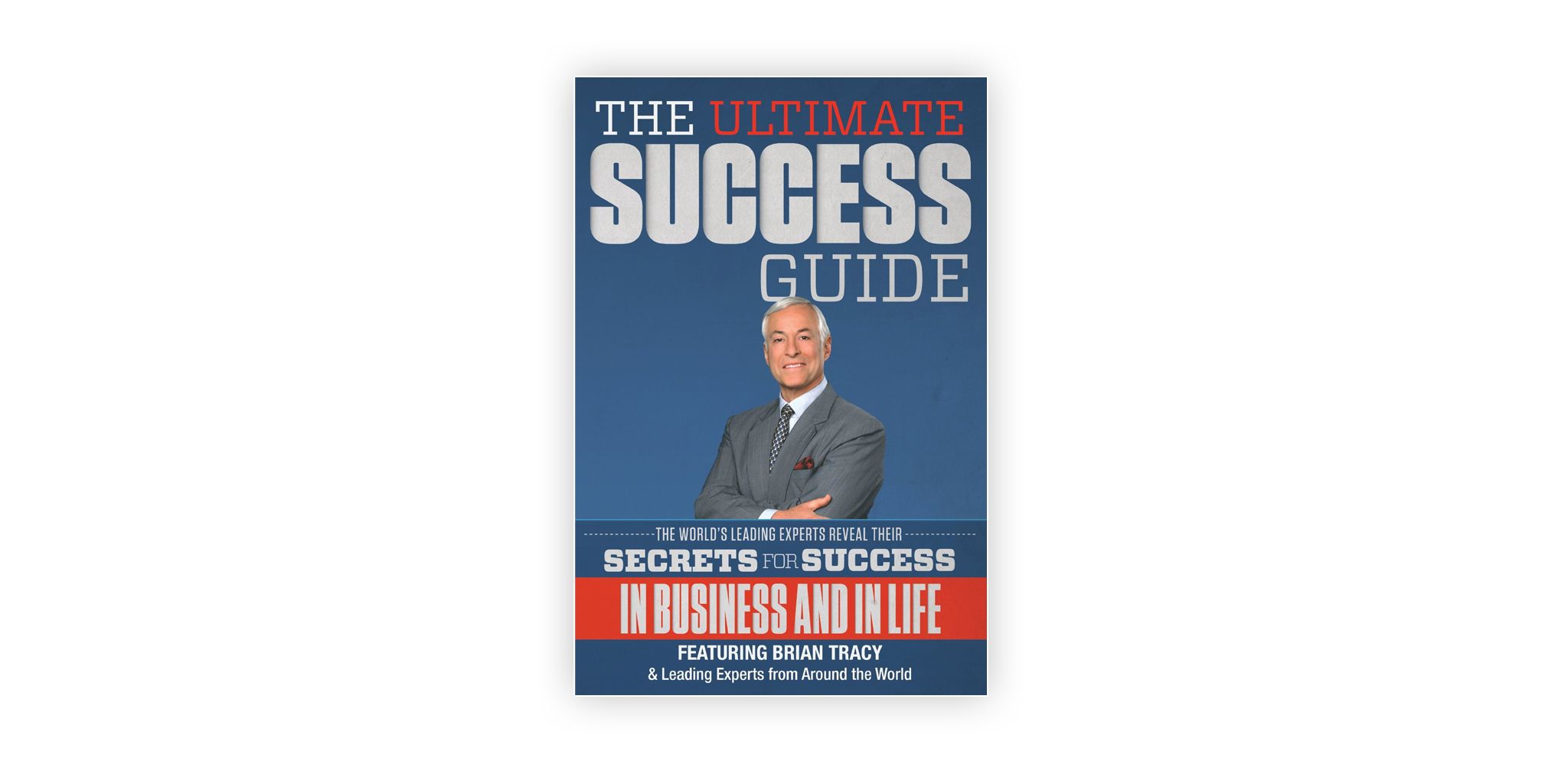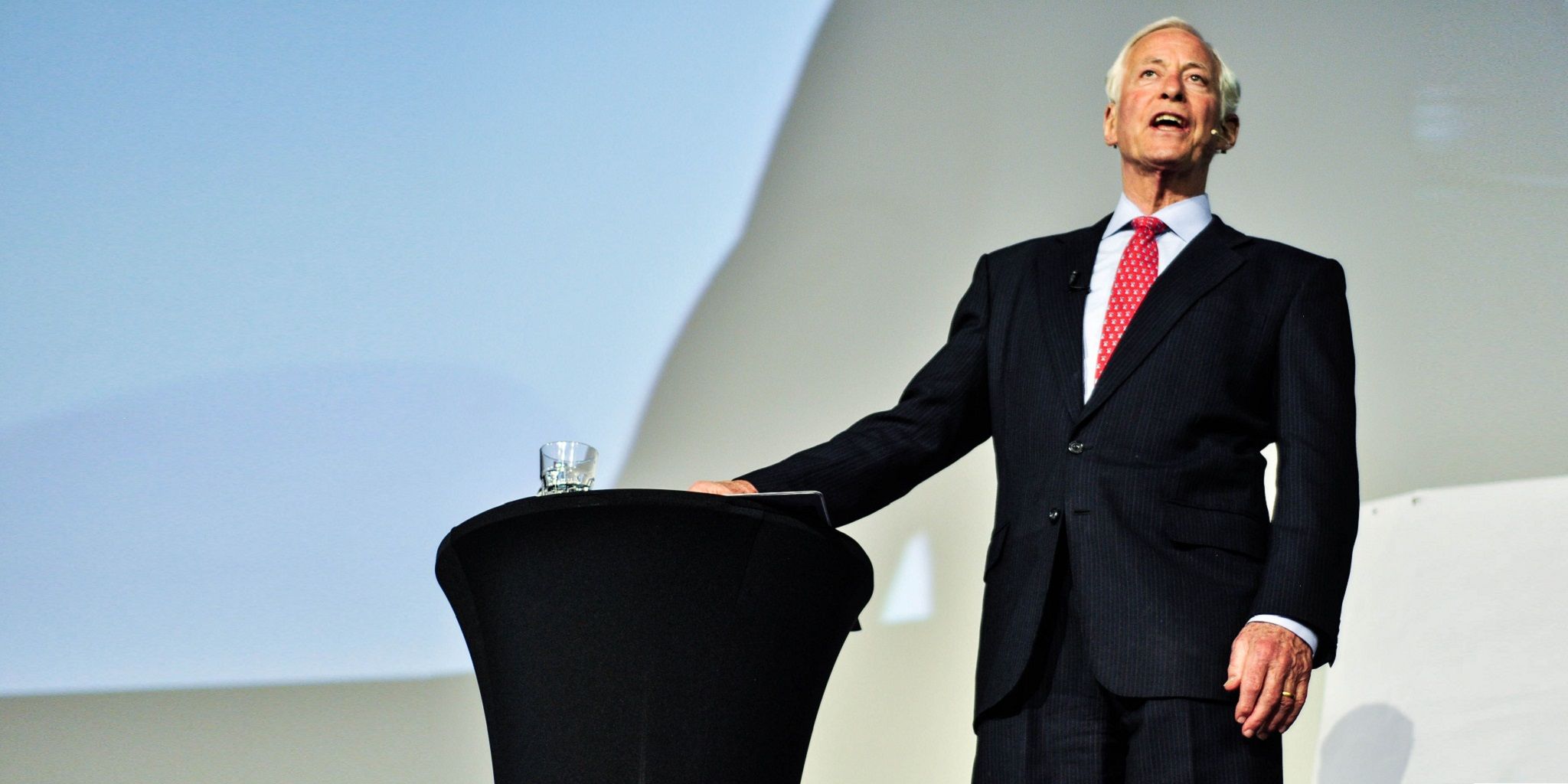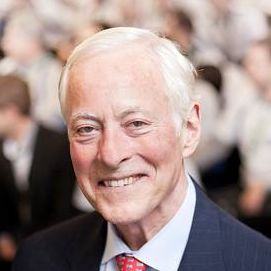Interview with Brian Tracy
Michael Sliwinski: What motivates you, Brian? What keeps you going?
Brian Tracy: It is very much the same as with being a good singer. If you are a good singer, you spend your whole life developing your singing ability. Just yesterday, I read an article about Petula Clark. You may not remember her, but she is a singer from the 60s and 70s. She was equal with the Beatles and with the Rolling Stones. I really liked her, and since then I have bought her “Best of Petula Clark.” She is 81 years old now, and she is back in studios in Hollywood recording her new album. The experts are saying that it is as good as anything she has ever done. At the age of 81! And they asked her the same question. She says she just loves to sing. And she has a great voice, she is a perfectionist, and so … why would you stop? And I love to speak — I am very good at it. And if you love to do something, you’re very good at it, and also you are paid well, why would you not do it? Why would you stop? I can’t imagine sitting at home.
Michael Sliwinski: So you’re not going to retire anytime soon? :-)
The whole idea of retirement was invented in 1870 by Bismarck. And he set the retirement age as 65 when the average life span of the average German was 50 years old. He was the one of the greatest politicians. It was a wonderful political decision and vote-buying idea: we–the government–will actually allow you to retire at the age of 65. Well, firstly, nobody ever made it. And then, in the U.S., when they were desperate for votes, they came up with the social security. They said: “What age do we pick?” “Bismarck picked 65; let’s pick 65.” And the average life span of the average American at the time was 52 to 54 years old. They thought, we will able to collect taxes, we will get voters back in the office, and we will never have to pay anything out. It never occurred to them that the life span may increase. And now, why are all the western countries bankrupt? Because they have social security obligations that are far beyond the total Gross National Product of their countries. And what they did is took the money in, and they just spent it.
Michael: That’s exactly what is happening in Europe.
My point, though, is this: because of increasing life spans, 75 years old is what previously was 65 in terms of chronological, physical age. When social security was introduced, most people were working in labor jobs, and they were like the pieces of machinery that wore out. They had to be taken off the line, put out in the field, and after they retired, they lived two years and seven months. Now people are living 20 years! So if you are working physically, you look forward to retirement so you can stop working. It is almost like you are working in the field. They are looking forward to the end of the day so that they can stop working and rest. But if you are working with your mind, you never want to stop because you are continuously learning new things, you’re getting better, you enjoy it, and you’re active and healthier. You have energy, you are stronger. So people who work with their minds never want to stop working because they are not worn out. They are motivated by doing what they do, by doing it differently. They might be doing less, but they never want to stop.
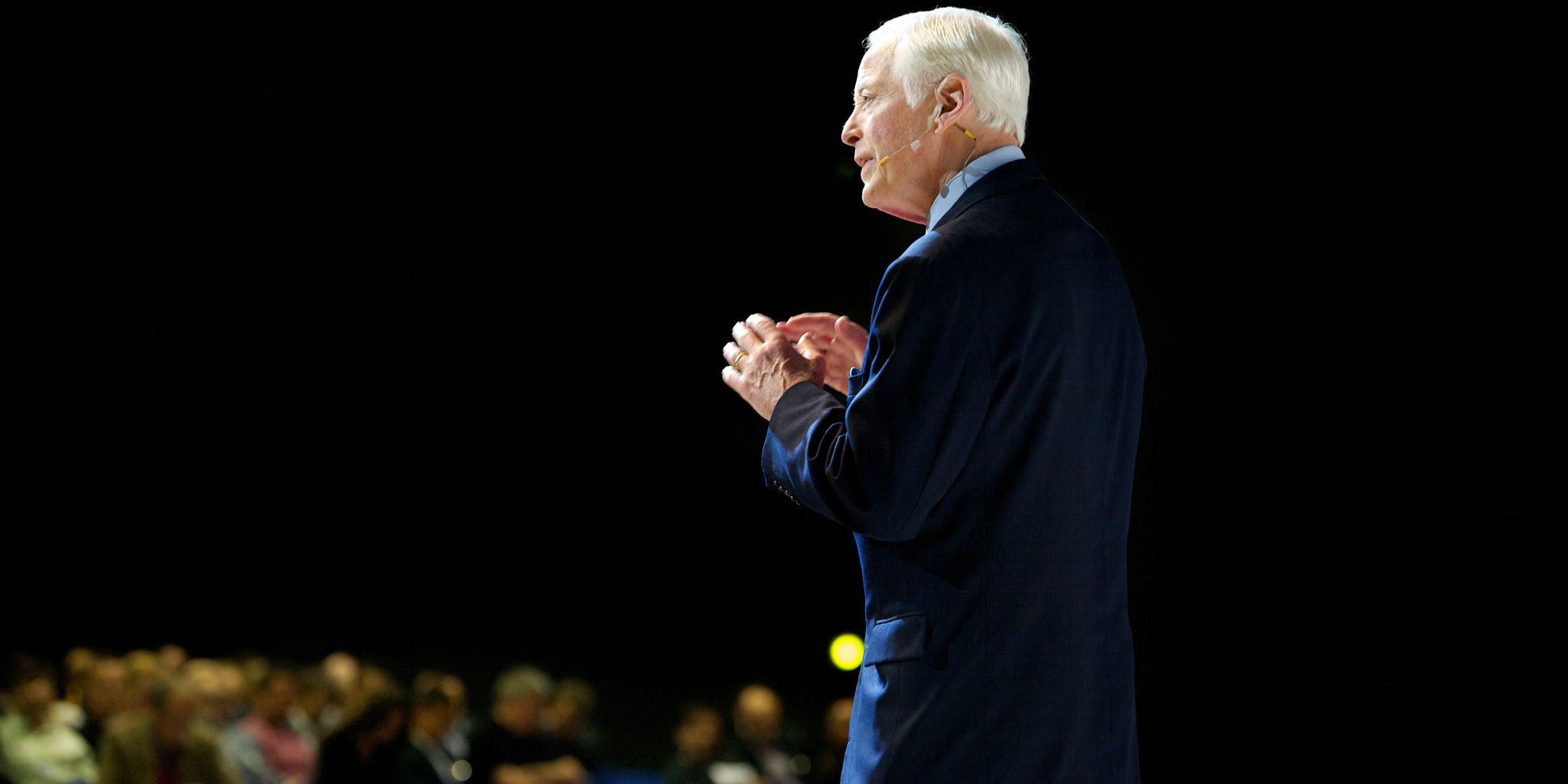
Michael: And you’re a great example of just that! Now, you’re the world’s expert on success. If you were to name the key factors to achieving success, what would they be?
Brian: First of all, you have to set big goals for yourself. And you have to put aside all the negativity in your life that tells you that if you came from a certain education or a certain family background that you can’t achieve big goals. That’s one of the things that America has. In America, part of the DNA is that you can achieve anything. It doesn’t matter where you came from, it doesn’t matter how poor you are, it doesn’t matter where your family was. It all doesn’t matter. You can achieve anything if you have really clear goals and if you work really hard to learn what you need to learn.
So I always say there are two things to be successful. The first is decide exactly what you want–set your goals–and then determine how you will achieve them (what skills you will have to learn, what actions will you have to take). And these are totally under your control. These are not dependent upon anyone else. So I would say learn how to set goals. Make plans for your goals and work on them every day. You will automatically become more positive when you care about what you want, and you are working toward it everyday. By working out physically every day, you will become healthier and healthier, physically. When you work towards your goals, you become healthier and healthier, mentally. It is very hard to do with a negative attitude. You just need to become more and more positive. And then you start to succeed. And starting to succeed is like winning a race and having the audience cheer. That makes you feel happy and motivates you to work even harder and achieve even more. And you can get onto an upward spiral or you can stay flat. Or you can get onto a downward spiral.
Michael: I can totally relate to what you said about loving your work. But I can also relate to the fact that when you love your work and you love your family, this makes two things that you love. How, according to your experience, is it possible to combine these two loves?
Brian: This is a great question. I do the whole seminar on the balance between your family and work.
First of all, you have to work really hard to be successful. Anybody who tells you that you can have lots of fun at work, and have balance and have your personal life is a mediocre person. They will never accomplish very much. And what they will do is surround themselves with the other people and tell this to them: “You know, you should be able to have your life in balance, you should have lots of fun.” This way, you will never make more than enough to survive. To be successful, you need to really work hard. And every study in the last 50 years says that successful people say, “I am not smarter than anybody else. I just want to work harder and longer.”
Let’s take a tightrope walker. How often does the tightrope walker balance when walking across the tightrope? All the time! It is the same thing if you really want to have a successful career, and you want to have a happy home life. It is a matter of balance.
Michael: Yeah… You have to do it all the time.
Exactly. And you’re always finding different ways. And discussing with your spouse and children about going on vacation, on the times when you’re working and the times when you are playing. It’s neverending.
Michael: I really liked the thing you said during your seminar, that whenever your wife or your children talk to you, you have to put everything else aside.
Brian: Yes. You need to stop anything you’re doing.
One of the important rules that I teach all the time is leave things off. Turn off the phone, turn off the computer, turn off the TV. Turn off all the noise. Never have your radio on when you are traveling with your family or a family member in the car. My kids, who are now 32, have always known that. When you are in a car, there is never anything on. So what happens in a car is it fills with conversation. When you are sitting in the living room with your spouse and the television is off, you just start talking. And then the children start talking. And the richness of your relationships come from communicating. There is no other way to work on a great relationship than to sit together with things off. And that’s why people who are starting to practice that are always astonished. Whether with their executives or their parents. They are astonished with the difference in the quality of their lives. Just when they leave things off. It seems so simple.
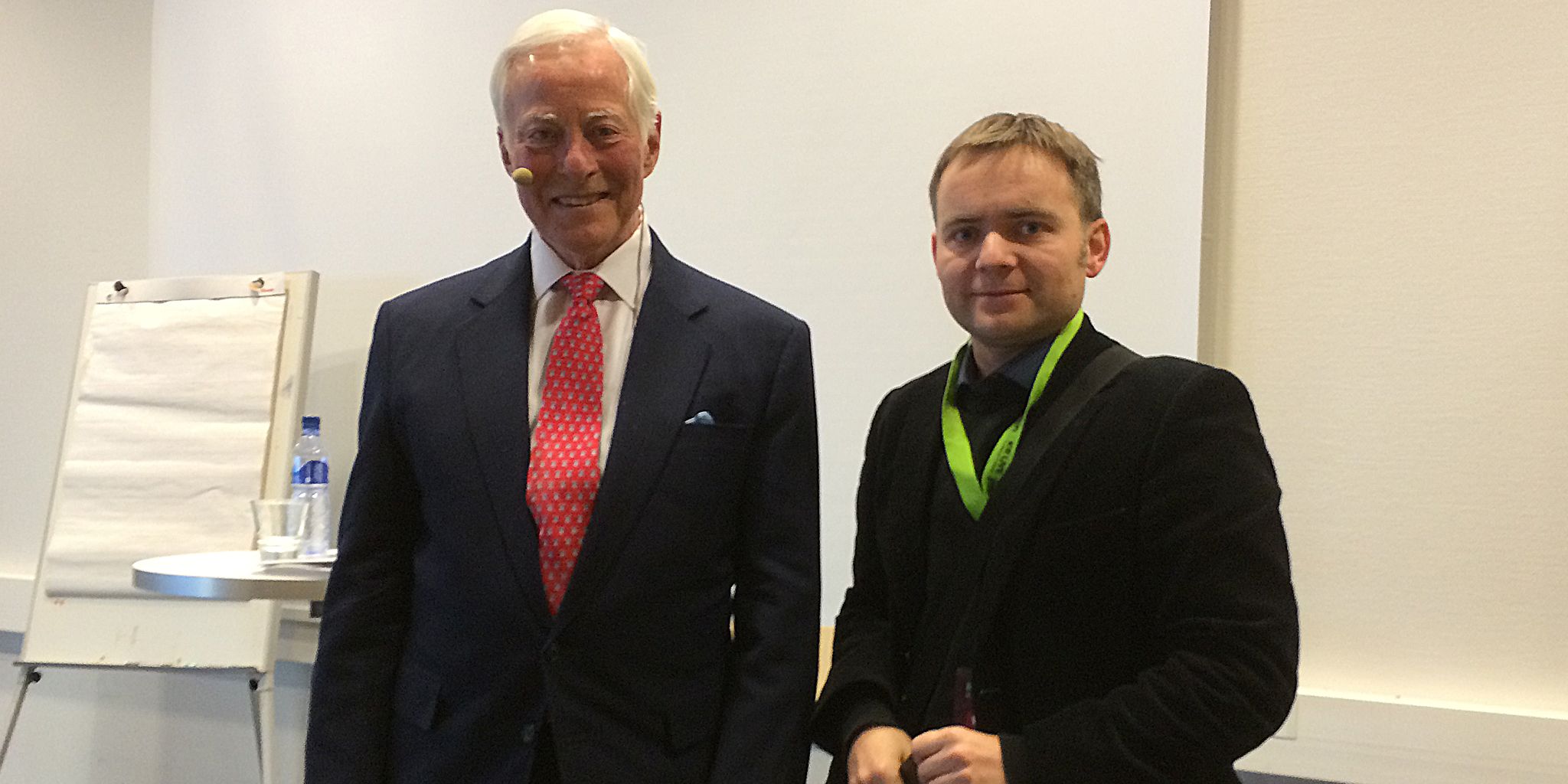
Michael: I’d like to relate to another thing you mentioned in your presentation. You talked about this “ten by ten” technique. It reminds me of your book Eat That Frog where you also advise to do the most important and difficult things in the morning. Why is that so important?
Brian: It lets you start the day off productively. And it moves you to a higher level. Mentally. And you move on this higher level all day long. You think faster, your mind works better. It’s called “The Zone”. You get into The Zone (sometimes they call it “flow” or “optimum performance”). By doing the most important thing in the morning, you actually kick yourself into “The Zone”, and the whole quality of the day is superior. If you start off checking your e-mail or reading a newspaper (and these are things which we all do), unfortunately you start off on a low level, and you are very slow to get up from there.
Michael: Another interesting thing you said is related to control. You can manage the process, but you can’t control the outcome.
Brian: Exactly. You can control the activities. People want to write the book. 82 percent of adults want to write a book. It is the biggest single demographic in the world. Everybody believes they have a book about themselves or about their adventures and so on. Only one or two percent of people will ever write a book. Why? Because they don’t learn the process of writing. The process of writing a book is like the process of preparing a dinner. Serving dishes, choosing ingredients and so on. So I began teaching … Well, first of all, I write four books a year. And these are all published by major publishers worldwide in multiple languages. And many people dream of publishing one book. I have a good friend who, for his whole life, has been dreaming of writing a book and has been working on a book. And he has never got the book done. And that’s 40 years he has been working on the book. Why? Because he didn’t have a system. So I teach the system. Now, I have people write to me and send me the books they have written just by following the system. Because if you follow the system, you will have you book in 90 days. Maybe even published! It is like a recipe. Just follow the recipe for writing a book. There are millions of books written and published, so obviously there is some system :)
Michael: Before traveling to the conference here, I was packing. I was sure I took everything, but after running through my checklist, I found out that one important item was missing.
Brian: Yes! Have you ever read that book called The Checklist Manifesto? Atul Gawande shows how this occurs over and over again in the hospital emergency departments. The one item is forgotten. Everybody thinks that everybody should know this, so somebody has obviously done it … And the patient dies.
One example he gives is the mortality rate of this particular condition was 90 percent in this hospital. Nine out of ten people were dying. And so they introduced the checklist to make sure the six things were done and put a sequence of this. The mortality rate dropped to below 10 percent. Because always somebody was missing one of these essential ingredients. And they were very simple things. And so with your idea of a traveler’s checklist, you can accomplish wonderful things if you just make a list of everything you need to do and follow your list.
Michael: And they have checklists everywhere! Even the pilots have thick checklists for every circumstance, right?
Brian: I told you that I spoke for IBM. The gentleman who brought me in to IBM was the Senior Director of Training. One day I called him, because he was my client, and they told me, “Sorry, but he is dead.” I thought: Dead? He was around 40, and he was a healthy and nice guy. And I asked, “What happened?” “You heard about that Delta Air Lines plane that crashed in Dallas? He was on it.”
I began reading about this accident. They did a big investigation, and what they found out was that the pilots got on the plane, and they had a good time at dinner the night before and they were talking about it. Pilot, co-pilot and engineer. Professionals. Years of experience. And there are certain things you need to take off a plane. So they were doing all those things and chatting at the same time. So apparently, they missed one thing. And the one thing was the flaps. The ones that need to go up and down. When they put the flaps up, the wind pushes down the wings to bring the plane up. And as the plane went down the runway, they forgot to put the flaps up. And what happened was that the plane went down the runway and went faster and faster, and instead of taking off, it just started to tumble. So many people died. And it was just one thing on a checklist. So simple. When you learn to fly your first little plane, the first thing they tell you is flaps! “Check the flaps!” “Check the flaps!” “Check the flaps!” It is the same when you are landing: “Check the flaps!” “Check the flaps!” These guys had done it thousands and thousands of times. They had the cockpit recorder, and at the point the pilots were supposed to check the flaps, one turned to the other and said something like, “Did you see this and this?” “Oh yeah, I was over there the other night.” And the plane crashed.
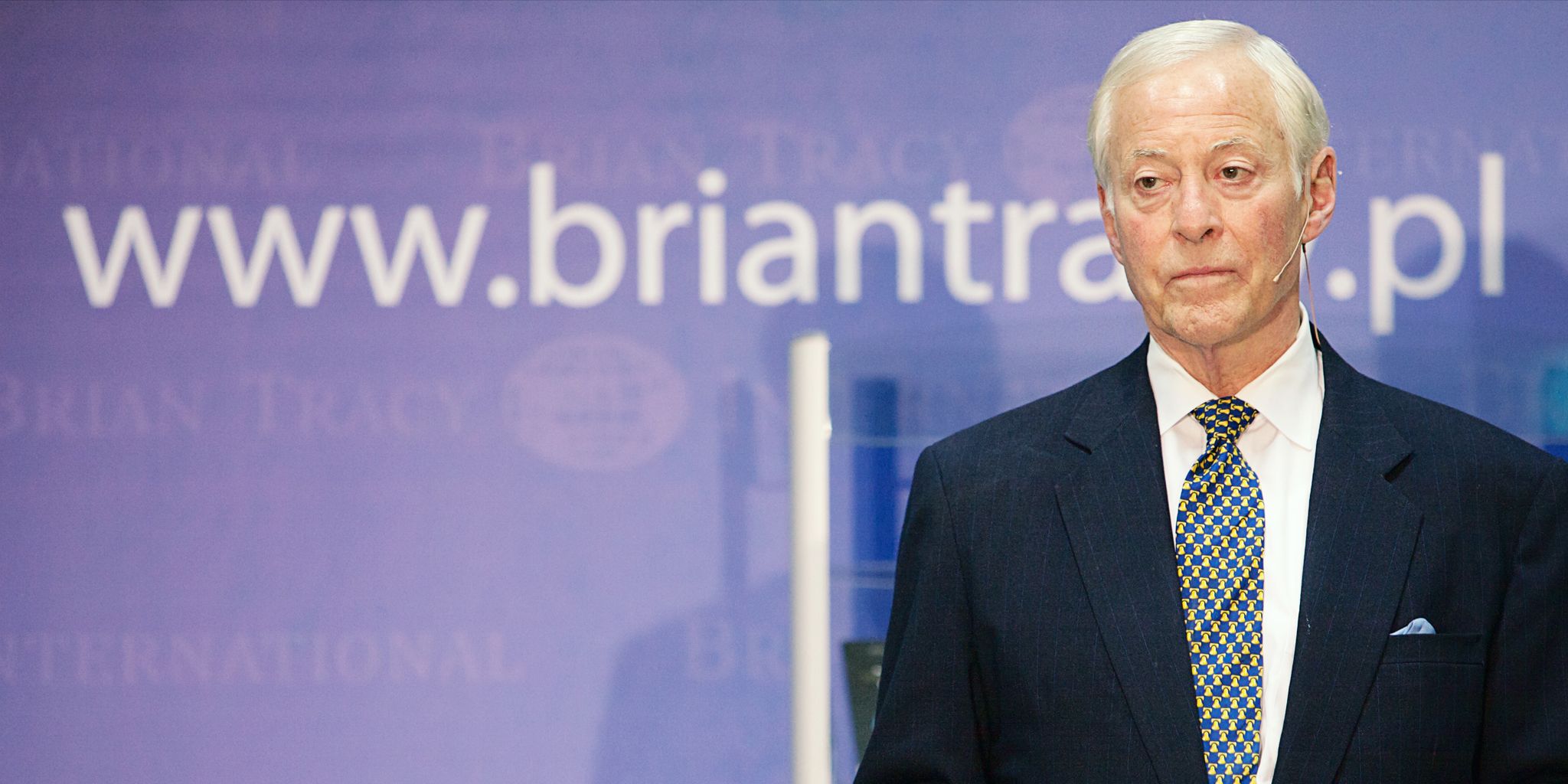
Michael: Exactly. We should be dead serious about the checklists. Now, again from your last seminar, let’s talk about product development vs customer development.
Brian: It is interesting today how products come out in incredible speed. But the most important thing you do is get the customer before you produce the product. As you go out to a customer you say, “We are thinking of producing this product, would you buy it?” And if he says, “I’d buy that,” then you reverse-engineer it and you start developing your product. So the rule now, and it’s a whole new insight into business, is called customer development rather than product development.
All the businesses from the beginning of history have struggled with product development (assuming there is a market, doing the market testing and so on). But now they start with customer development. Get the customer who says, “Yes. I want that. I need it. I wanna use it. I’ll pay for it.” And then you go back and work with your engineers. It is changing the world!
Michael: And in the startup world (I also run a startup company) there is a movement called: “lean startup”. This is exactly the same thing. First you produce a very simple mockup, the minimum viable product, and they ship it to the first bunch of customers.
Brian: Yes — that’s exactly the same. It’s about testing. Once I did a market testing in my office — as sometimes you can make a market test on one person. I was talking to a very, very accomplished woman who has been training in communications for 30 years for large companies. She was in her 60s, and she wanted to develop a product. First idea was to make a CD that trains women how to be effective in giving video presentations. It was because she read that everyone now is going for video, Facebook, YouTube etc. And I said, “I am not sure it is a good product. I am not a woman, but from my experience, very few women are interested in learning how to be more effective giving video presentations.” But maybe some are. The question is where are they, who are they and whether they would buy something like this. So I said, “If you wanna teach people how to communicate and you want to focus on women, what would be a good message that you are capable of delivering?”
I said, “How about: when she talks everyone stops and listens?” Because that’s what women want. They want people to pay them serious attention when they talk. And when they talk, they want to be listened to and respected without losing their femininity, without being aggressive or loud.
She said, “But I don’t know if there is a market for that.” So I called to my assistant Sandy, who was just outside. I said, “Sandy, we’ve got two products here. Which of these would you buy?” I presented her the first one, about the video presentations. She said she wasn’t interested. It would be the same with all the other women working in my office. And Sandy was a perfect example. And how about the second product? The one about being persuasive, influential, respected. Causing people to stop and listen when you start talking. She said, "I’d buy that!” “How much would you pay for it?” I asked. She said $25. For the CD. I turned to the woman and said, “Here is you market test. That’s the product you will produce, because we have one customer here”.
Michael: I recall the same happened to you when you developed your new product SSI Sales Success Intensive?
Brian: Yes, the reason I developed the SSI training is because of the incredible market response to our previous trainings on sales and interaction. They got standing ovations over and over again. We have hit upon the teaching method here. This idea of teach and interaction, teach and interaction, for all the day. These people were just like stepping on the accelerator in the car: vrrooom … vrrooom … all day long. And at the end of a day everyone is exhilarated and they learn so much! It is our new program that we offer now.
It’s been market tested for three years in front of thousands of people of different nationalities all over the world. And it’s got 100 percent success rate. That’s how you create the product that meets the needs of the clients.
